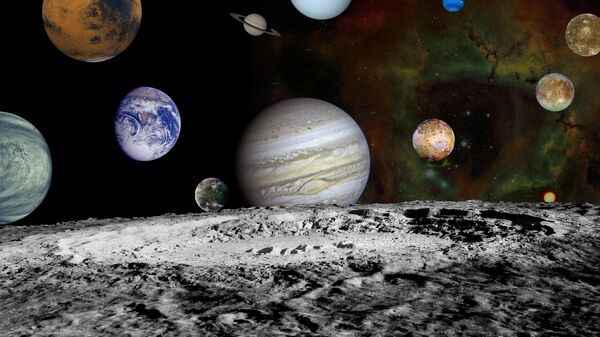NASA announced in a press release on 5 August that it will be reexamining the unofficial nicknames often used to describe astronomical objects such as planets, galaxies and nebulae.
The heavenly bodies are occasionally referred to by their more seemingly “public-friendly and approachable” names.
For example, Barnard 33 was given the nickname of "Horsehead Nebula" due to its appearance, in a seemingly innocuous gesture.
Yet in an era of heightened awareness of “diversity, inclusion, and equity”, the scientific community is being urged to address systemic discrimination and inequality in all aspects of its operational field.
Some cosmic nicknames might be interpreted as insensitive, or even harmful.
“I support our ongoing reevaluation of the names by which we refer to astronomical objects. Our goal is that all names are aligned with our values of diversity and inclusion, and we’ll proactively work with the scientific community to help ensure that. Science is for everyone, and every facet of our work needs to reflect that value,” said Thomas Zurbuchen, associate administrator of NASA’s Science Mission Directorate at Headquarters, Washington.
Towards this newly announced goal, NASA will be cooperating closely with diversity, inclusion, and equality experts who will be providing recommendations.
As a first step in the direction, the remains of a Sun-like star, planetary nebula NGC 2392, will no longer be dubbed the “Eskimo Nebula,” as “Eskimo” is widely perceived as a “colonial” term imposed on the indigenous people of Arctic regions and permeated with racist history.
As we work to identify & address systemic discrimination & inequality in all aspects of the scientific community, we are reexamining the use of unofficial terminology for cosmic objects which can be not only insensitive, but actively harmful. Read more: https://t.co/ZNicp5g0Wh pic.twitter.com/jDup6JOGBd
— NASA (@NASA) August 5, 2020
A pair of spiral galaxies located in the Virgo Galaxy Cluster that have been referred to as the “Siamese Twins Galaxy” are also to be known now as NGC 4567 and NGC 4568.
In future, NASA will use only the official, International Astronomical Union designations in all cases where nicknames are deemed inappropriate.
"These nicknames and terms may have historical or culture connotations that are objectionable or unwelcoming, and NASA is strongly committed to addressing them… Science depends on diverse contributions, and benefits everyone, so this means we must make it inclusive,” said Stephen T. Shih, Associate Administrator for Diversity and Equal Opportunity at NASA Headquarters.


